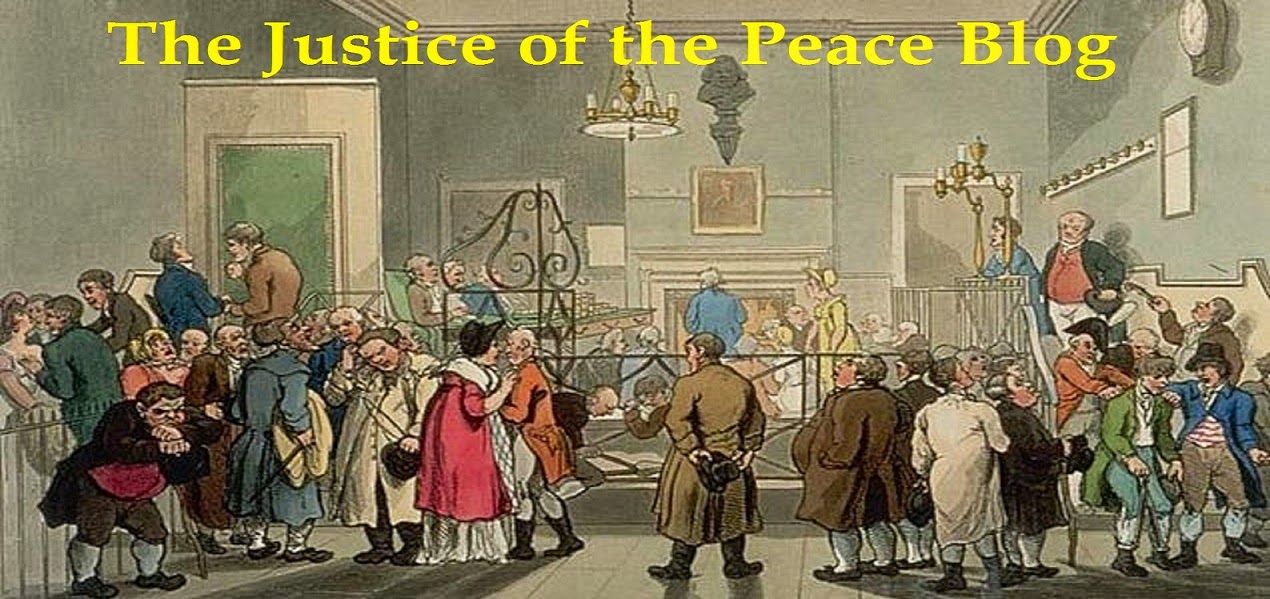Speak to politically minded people in the United States of the separation of powers and they will immediately understand the meaning and significance of that phrase. They will quote from the Constitution; the document which to many of them is more important and significant than the Holy Bible on which many were brought up and which is quoted as their moral guiding light. But it is not unlikely that the same phrase offered to the average citizen of these isles will produce no more than a frown and perhaps a questioning reply of "what"? I exclude of course readers on this site from that criticism. The UK lacks a written constitution; a phrase which found much favour during the recent regal festivities. The UK relies on a system of checks and balances to prevent against abuses of power. When the Tudors`, their predecessors` and finally the Stuarts` control of government through the doctrine of the divine right of kings finally ended in 1688 there was gradual constitutional change to representative government where there was at least in theory a separation of powers insofar as a Parliament, an executive and the courts would each have its own perimeters exercising its powers accordingly. When there is or appears to be an imbalance in the powers of these three constituents of that basic democratic system whether in this country or abroad there is a fundamental threat to that democracy. Such imbalances are currently happening in the United States where the Supreme Court populated by a Republican majority appointed by Donald Trump is in opposition to many states legislatures on the subject of abortion. Israel, another country with what was supposed to be a fiercely incorruptible democratic system of government, was recently in constitutional turmoil over its supreme court`s overturning of government policies much to the ire of right wing cabinet members. In all totalitarian states the executive branch has by various means usurped the powers of either or both the other two branches of government. There are those who thought that that sequence of events could never happen here; some are beginning to wonder.
Justice and our courts have been described as a level playing field where an equality of arms allows the guilty to be punished and the innocent to be absolved. The institutions to preserve this noble concept have been separated from the executive and appointed personnel have been tasked with ensuring it functions at arms length from the appointers. There are now questions as to how long this concept will continue to be the basis of our justice bedrock owing to the underlying precepts of the Victims and Prisoners Bill. This is "a Bill to make provision about victims of criminal conduct and others affected by criminal conduct; about the appointment and functions of individuals to act as independent public advocates for victims of major incidents; about the release of prisoners; about the membership and functions of the Parole Board; to prohibit certain prisoners from forming a marriage or civil partnership; and for connected purposes." (my bold).
Under the proposed legislation ministers would have the power to veto the release of dangerous prisoners repeatedly even if approved by the parole board. In actual practice this could affect about 600 prison releases annually. Murderers, rapists and terrorists would have a parole decision to release on license overturned by the executive. It is not unlikely that such new government powers would be welcomed by the hang `em and flog `em brigade of the Right in and out of parliament. Indeed some recent releases where dangerous men have committed further heinous crimes will have reinforced that sentiment. Amongst those voicing their concerns at this worrying increase of ministers` powers are former Tory Secretary of State for Justice David Gaulke and former Tory Prime Minister John Major.
What would be a positive step and yet allay the concerns of those who consider that sentencing for serious criminality is out of step with public opinion would be that the concept of automatic early release is abandoned. Page upon page of the Sentencing Guidelines inform sentencers how to relate all relevant circumstances of the criminal, the crime, the victim and the law into time to be served. Indeed that very process is tailor made to become "the computer says no" or similar scenario in the not too distant future. Let convicts serve their full allotted sentence with early release determined solely by their behaviour in jail and their indications of rehabilitation. But that would require more jails, prison officers and probation staff and so much more money for a system which governments of all shades are parsimonious.
With the current elective dictatorship of the House of Commons this blogger can only hope that there are still some Tory MPs who have a clear sense of what is best for this nation even if their hopes of re-election are slowly fading. No doubt the other place will voice its objections. In August 2019 Boris Johnson provoked a constitutional uproar when he announced plans to shut down parliament for five weeks daring opponents of his Brexit strategy to vote down his government.The government argued that the 2017-19 session was already the longest session of the UK Parliament’s history and that it was entitled to use the Royal Prerogative in this way. It explained that it intended to bring forward a Queen’s Speech to refresh its legislative agenda following the change of Prime Minister in July 2019. The Supreme Court maintained that this long prorogation significantly interfered with the constitutional principles of parliamentary sovereignty and parliamentary accountability. Such an interference required a “reasonable justification”. On the facts the Court concluded the government had not offered any justification for the prorogation’s length, let alone a “reasonable” one and accordingly the decision to prorogue was unlawful. This should provide a salutary lesson that this country is not immune to the surreptitious infiltration of authoritarianism at the highest level of government. The current matter as outlined above is an early warning.



















